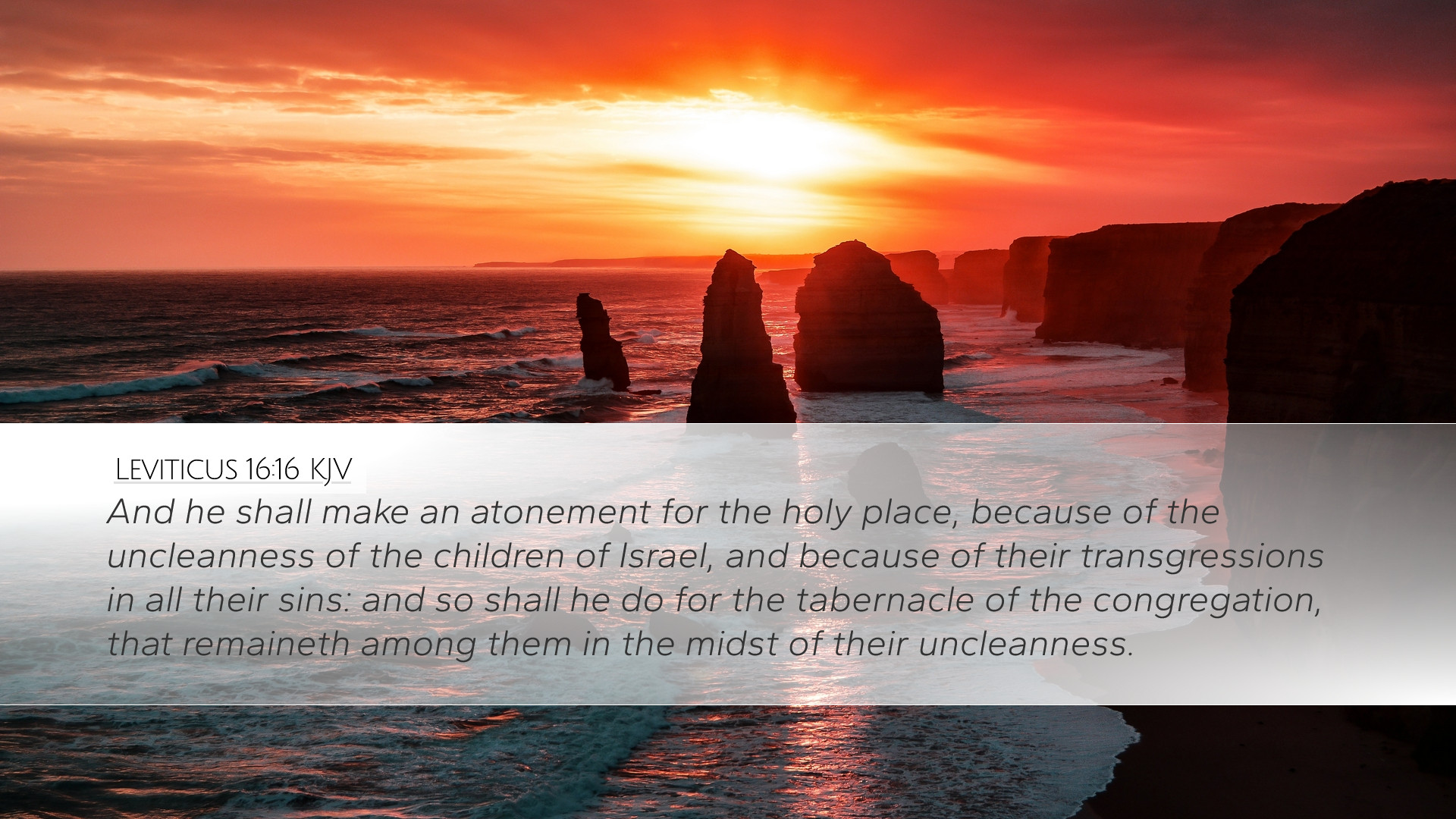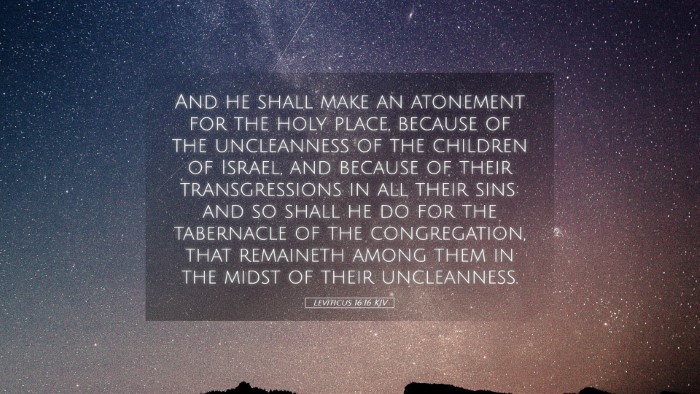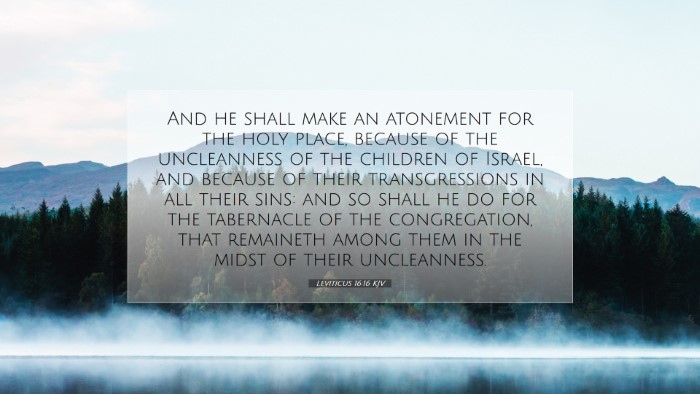Commentary on Leviticus 16:16
Verse: "And he shall make an atonement for the holy place, because of the uncleanness of the children of Israel, and because of their transgressions in all their sins: and so shall he do for the tabernacle of the congregation, that remains among them in the midst of their uncleanness." (Leviticus 16:16)
Introduction
This verse is situated within the larger context of the Day of Atonement, a pivotal observance in ancient Israel's religious calendar as detailed in Leviticus 16. It serves as a reminder of God's holiness, the gravity of sin, and the profound need for atonement. The insights from early biblical commentators provide depth in understanding both the practical instructions of the text and the theological implications behind them.
Exegesis of Leviticus 16:16
1. The Concept of Atonement
Matthew Henry emphasizes the necessity of atonement for the transgressions of the people. The act of making atonement signifies a restoration of harmony between God and His people, affected by sin. This process was crucial for the Israelites, who understood that their very survival and blessing were contingent upon their relationship with God.
2. The Holiness of God
Albert Barnes notes that the holiness of the place—specifically the tabernacle—demanded atonement whenever the people fell into sin. The holy place typifies the divine presence, and thus, it cannot coexist with impurity. The need for atonement becomes a mediator between the sacred and the profane, which is a central theme in Hebrew worship.
3. The Role of the High Priest
Adam Clarke elaborates on the role of the high priest in this verse, emphasizing his unique position as a mediator. He acts on behalf of the people to seek forgiveness and purification for sins both collective and individual. This foreshadows the ultimate High Priest—Christ—who fulfills these sacrificial roles in the New Testament.
Theological Implications
1. Understanding Sin and Cleansing
The ongoing theme of uncleanness in Leviticus reflects a broader biblical understanding of sin. Henry points out that sin has pervasive effects, contaminating not only individuals but also the communal worship space. It establishes the need for a systematic approach to cleansing and signifies God's intolerance toward sin while maintaining His desire for reconciliation.
2. The Importance of Community
Barnes indicates that this atonement corresponds to communal responsibility. The collective sins of the Israelites necessitate a unified response, suggesting that individual actions affect the whole community. This principle of communal accountability serves as a model for contemporary church communities today.
3. Christological Perspectives
Reflecting on the New Testament fulfillment, Clarke suggests that the rituals of atonement in Leviticus prefigure the work of Christ. Just as the high priest entered the Holy of Holies once a year, Christ entered once for all, providing everlasting atonement (Hebrews 9:12). This enriches the understanding of Leviticus 16:16 as not only a historical account but also a foreshadowing of Christ’s salvific work.
Practical Applications for Today’s Believers
1. Atonement as a Foundation for Worship
Our approach to worship and communion with God must begin with an acknowledgment of our sinfulness and the need for atonement. Reflecting on this requires humility and a heart willing to pursue holiness. The insights from these commentaries direct us to seek a deeper understanding and appreciation for Christ’s atonement in our lives.
2. Community and Accountability
The significance of communal atonement echoes in modern church life, where corporate sin and collective righteousness are equally pertinent. Barnes’ interpretation urges pastors and leaders to foster environments of accountability and collective holiness, reminding congregations that they are in a communal covenant with God.
3. Theological Reflection and Prayer
Spending time in prayer, reflecting on the seriousness of sin and the grace of atonement provides believers with the opportunity for spiritual revival. Engaging with both personal and communal aspects of sin allows us to deepen our understanding of the intercessory role of Christ.
Conclusion
Leviticus 16:16 serves as not only a directive for ancient Israel but a profound proclamation of God’s desire for relationship through the atonement of sins. The commentaries of Matthew Henry, Albert Barnes, and Adam Clarke enrich our understanding, unveiling layers of meaning that challenge and encourage modern believers to recognize the weight of sin and the immeasurable grace of atonement.
As we reflect on this verse, let us continue to pursue holiness, acknowledging our need for God’s grace and the sacrificial love of Christ that connects us to the Holy One of Israel.


